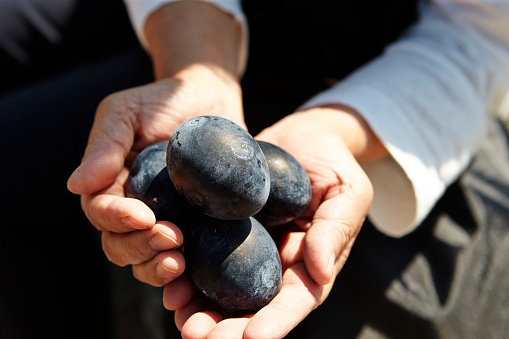

FAQs
Frequently Asked Questions
What are the travel documents & entry requirements for Japan?
Do I need a visa to visit Japan?
UK citizens can visit Japan visa-free for up to 90 days. Ensure your passport is valid for the entire stay.
Are there restrictions on medication in Japan?
Yes, Japan has strict regulations on medication. Certain over-the-counter drugs (e.g., those containing pseudoephedrine) are prohibited. Carry a prescription for essential medication.
Check the Japanese Embassy website: Medication Rules
Do I need vaccinations before travelling to Japan?
No mandatory vaccinations are required, but it is advisable to be up to date with Hepatitis A, Hepatitis B, Typhoid, and Influenza.
Can I bring food into Japan?
Japan has strict quarantine laws on bringing fresh produce, dairy, meat, and plant-based products. Packaged food is generally allowed but must be declared upon arrival.
What do I need to know about general safety and emergency?
Is Japan a safe country to visit?
Yes, Japan is one of the safest countries in the world. However, it's always good to be prepared for emergencies.
What are the emergency contact numbers in Japan?
Police: Dial 110
Ambulance & Fire: Dial 119
Assistance for Travellers: +81 (0)50 1234 5678
Where is the UK Embassy in Japan?
Address: 1 Ichiban-cho, Chiyoda-ku, Tokyo 102-8381, Japan
Phone: +81 (0)3 5211 1100
Website: www.gov.uk/world/japan
Opening Hours: Monday to Friday, 9:30 AM–4:30 PM (except public holidays)
What’s the weather like in Japan?
When is the best time to visit Japan?
. Spring (March–May): Mild weather, cherry blossoms. (10–20°C)
. Summer (June–August): Hot & humid. Lightweight clothing recommended. (25–35°C)
. Autumn (September–November): Comfortable temperatures & autumn foliage. (15–25°C)
. Winter (December–February): Cold in most regions; heavy snow in the north. (-5–5°C)
When is the typhoon season?
Japan's typhoon season runs from May to October, with peak activity in late summer. If travelling during this time, monitor local weather updates and be prepared for potential delays in transport and sightseeing closures due to heavy rain and strong winds. Hotels and tour operators usually provide updates in case of severe weather conditions.
What do I need to know about money?
What currency is used in Japan?
Japanese Yen (¥)
Where can I withdraw cash?
ATMs: Available in 7-Eleven, Lawson, Family Mart, and post offices.
How much cash should I take?
Japan is still a cash-heavy society, especially in rural areas and at smaller businesses. Most travellers find that both eating out and local transport are more reasonably priced than expected, as are Entry fees for temples, shrines, and museums.
Recommended Daily Cash Budget - It is advisable to carry at least ¥6,000–¥7,000 (£30–£35) per day for meals, transport, and small purchases.
Are credit cards widely accepted?
While credit cards (Visa & Mastercard) are accepted in urban areas, cash is still preferred in rural regions.
Do I need to tip in Japan?
No, tipping is not customary in Japan. Excellent service is expected as standard.
How can I be online in Japan?
How can I access the internet in Japan?
Pocket Wi-Fi: Rentable devices for multiple users.Prepaid SIM Cards: Available at airports and electronics stores.Free Wi-Fi: Available in hotels, cafes, and public areas, but not always reliable.
Can I use my UK mobile phone in Japan?
Yes, but check with your provider before travel.
Roaming: Most UK networks charge high rates for roaming in Japan. Some providers offer daily or weekly roaming passes.
Local SIM & eSIM: If your phone is unlocked, you can buy a prepaid SIM or eSIM for data and calls. Popular options include Mobal, Sakura Mobile, and Japan Wireless.
4G & 5G Coverage: Japan has excellent 4G and 5G networks. If your UK phone supports band 1 (2100MHz) and band 28 (700MHz), it should work well.
Alternative: Renting a Pocket Wi-Fi is often the easiest solution for unlimited data.
Can specific food requirements be catered for in Japan?
Can I drink tap water in Japan?
Yes, tap water in Japan is safe to drink nationwide.
Are food allergies taken seriously in Japan?
Food allergies are not as widely understood as in some Western countries.
Carry an allergy translation card in Japanese, explaining what you cannot eat.
Pack safe snacks in case suitable food is not available.
Be cautious with soy sauce, which often contains wheat (gluten).
When eating out, clearly explain dietary restrictions, as many dishes contain hidden allergens.
Is vegetarian or vegan food available in Japan?
Many traditional Japanese dishes contain fish stock (dashi), even if they appear plant-based.
Use apps like HappyCow to find vegetarian-friendly restaurants.
Look for Buddhist Shojin Ryori cuisine, which is completely vegan.
Is kosher food available in Japan?
Kosher food is limited but available in Tokyo.
Chabad Japan in Tokyo offers kosher meals and grocery items.
It’s best to bring packaged kosher snacks from home.
Can I find halal food in Japan?
Yes, but mainly in larger cities like Tokyo, Osaka, and Kyoto.
Check for halal-certified restaurants near mosques.
Use Halal Gourmet Japan for listings.